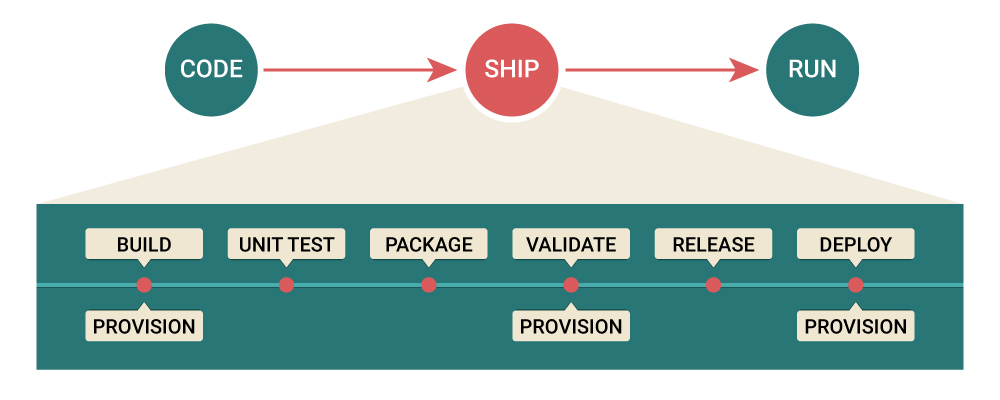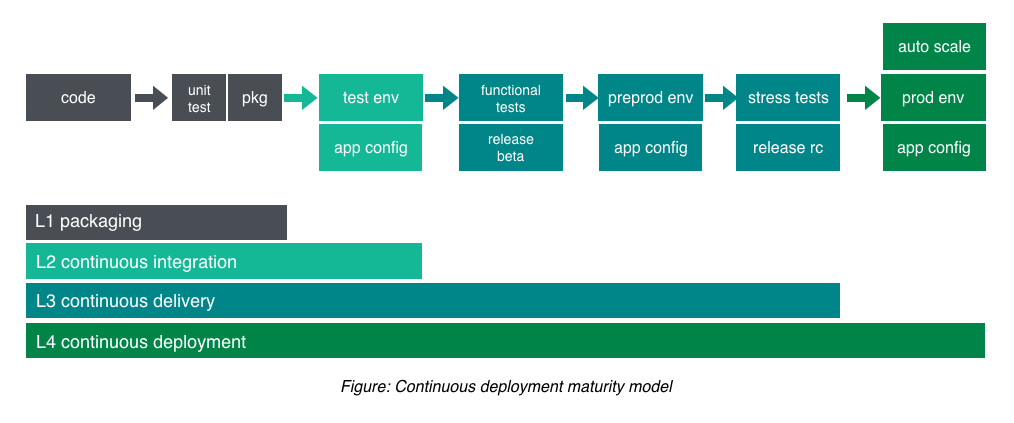Source: https://dzone.com/articles/5-growth-hacks-to-scale-your-devops-culture
"DevOps:" it's the buzz word in the software industry today and everybody is talking about it. Not only talking- everybody wants to practice DevOps. DevOps is all about automation and making processes agile and lean. The successful companies embracing DevOps, like Netflix, Amazon, and Facebook, have built their automation platforms in-house over several years, with large teams and millions of dollars of investment. The question is, can smaller organizations build such a platform with heavy investment and hiring a bunch of DevOps experts? Of course, this is not a good idea for a software startup or a small organization.
Doing DevOps the right way starts with figuring out the critical processes that you can automate easily. You should focus on the job run-time, state, visibility, and operations.
Hack 1: Zero-Touch Automation and Infrastructure as Code
Zero-touch automation is the key to DevOps success.

You need to make sure that, if possible, you can automate everything- but that doesn’t mean you have to be deploying straight to production. However, if you want to do it, you should be able to do it. Infrastructure as code always focuses on automating important IT processes, and this is where tools like Ansible come into the picture.
Identify the repetitive tasks across the software delivery and at each point, you need to achieve zero friction, making sure nothing is blocking developers work and code commits, focusing on job run-time, state, visibility, and operations.

Hack 2: Adopting CI/CD Practices Thoroughly
Make sure to practice frequent and rapid release cycles, starting with continuous integration. Shorter deployment cycles help you find bugs easily and correct them as they occur. You can use many tools to do this, which I have listed later in this article.

Hack 3: Straightening the Flow of DevOps Through Proper Training
DevOps is becoming mainstream and the organizations practicing DevOps are working on scaling it to new heights. It’s likely that large organizations are complex with thousands of developers working across different geographical locations; hence, scaling DevOps throughout is a challenge. This should be addressed first by the top management by forming teams and guidelines.
Training DevOps teams on the processes and tools that should be used across the organization is the key. These teams should be put in different geographic locations to train the developers on the tools and processes to follow. This process takes time, but patience is the key.
Hack 4: Encouraging Continuous Feedback Between the Dev and Ops Teams
While most organizations ignore the value of continuous feedback, you must take advantage of it to use it as a constant communication loop to improve the gaps and improve efficiency. Collaboration is an important aspect that helps teams to be on the same line and think alike. Using tools like Slack can easily help teams to notify of everything happening within the team.
Hack 5: Using Powerful DevOps Tools
Choosing the best DevOps tools is not easy and you see so many tools popping up every day. You need to evaluate the tools and analyze how a particular tool is going to help you do DevOps at each stage. Let’s name some tools that are making noise in the industry and help do DevOps the right way:
AWS (Amazon Web Services):
AWS helps software organizations to deliver their products faster to the market by enabling a lean methodology.
Git (GitHub):
Git is a free and open-source distributed version control system with the capacity to handle small to large applications.
Docker eases configuration management, control issues, and scaling, and allows containers to be moved freely from one place to another, helping you do a lot of work with less effort.
Ansible is a perfect DevOps tool with its ability to maintain a fully immutable server architecture and design.
The Splunk platform provides real-time insights across all stages of the delivery lifecycle- from application development, to test, to production monitoring.
Monit is a simple tool that can monitor processes, and in case if something goes wrong, Monit automatically restarts the processes by eliminating the downtime.
As an incident command center for DevOps engineers, PagerDuty enables them to add effective alerting and on-call scheduling to monitoring systems, and eliminate on-call hassles.
Chef:
Chef is a DevOps tool that provides a framework to automate and manage your infrastructure. Your real asset is the code that brings those servers and the services they provide to life.
Shippable offers a true DevOps automation platform that includes CI, release management, continuous delivery pipelines, infrastructure provisioning, etc.
Slack makes it easy to monitor and collaborate, and notifications make it a simple yet powerful tool. Slack boosts automation and collaboration by creating a new communication channel that automates common tasks and makes it easy to distribute real-time information.
Happy DevOpsing :)